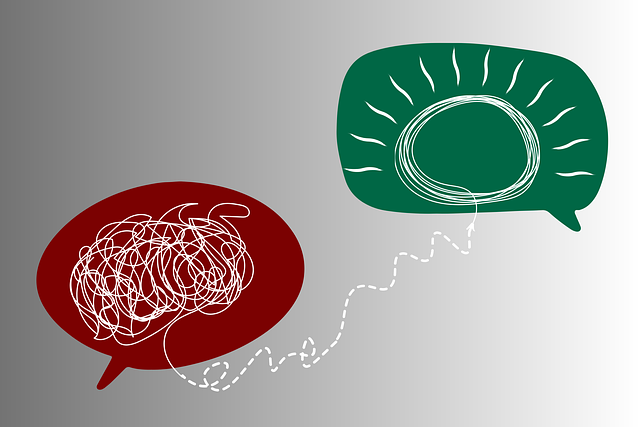Life transitions impact mental health significantly, with some offering growth and others causing anxiety due to the unknown. Stress relief therapy provides tools for effective navigation during these times, fostering resilience and a healthier mindset. Diverse approaches like CBT, mindfulness practices, art/music therapy, and support groups aid in managing life transitions. Regular physical activity and balanced lifestyles also serve as stress relief therapies. Building resilience through these methods enables individuals to face changes with control and confidence.
Navigating life transitions can be challenging, often leading to heightened stress levels that impact mental health. This article explores effective stress relief therapy strategies tailored to life’s significant changes. From understanding the role of stress in transition challenges to discovering therapeutic approaches like Cognitive Behavioral Therapy (CBT) and Mindfulness-Based Therapies, we delve into holistic methods. Additionally, we discuss the benefits of physical activity, lifestyle adjustments, support groups, and building resilience for long-term stress management during life’s inevitable shifts.
Understanding Life Transitions and Their Impact on Mental Health

Life transitions, whether positive or negative, can significantly impact our mental health and overall well-being. These changes include major events like starting a new job, moving to a different city, getting married, having a child, or even experiencing loss and bereavement. While some transitions offer exciting opportunities for growth and new beginnings, others may bring about feelings of anxiety, fear, and stress due to the unknowns they present.
Understanding that life transitions are a natural part of life is essential. However, when these changes occur rapidly or are particularly challenging, it can lead to increased stress levels. This is where stress relief therapy comes into play, offering individuals tools and strategies to navigate these turbulent times effectively. By prioritizing mental health during life transitions, we empower ourselves to build resilience and foster a healthier, more balanced mindset.
The Role of Stress in Life Transition Challenges

Life transitions, whether it’s a new job, moving to a different city, or dealing with significant personal changes, can be exciting yet incredibly stressful. This is where stress relief therapy plays a pivotal role in helping individuals navigate these challenges successfully. Stress, when left unaddressed, can hinder one’s ability to adapt and cope with life transitions, leading to increased anxiety and potential mental health issues.
During times of transition, the body’s natural response to change involves a surge of stress hormones, which can cause various physical and emotional symptoms. This is a normal part of the adaptation process; however, prolonged or intense stress may require professional intervention. Stress relief therapy offers a range of techniques and strategies to manage these feelings, promoting resilience and enabling individuals to embrace new circumstances with greater ease.
Exploring Different Types of Stress Relief Therapy

When it comes to managing life transitions, exploring various forms of stress relief therapy can be immensely beneficial. These therapies offer personalized approaches to cope with and overcome the challenges that often accompany significant changes in one’s life. One popular method is cognitive-behavioural therapy (CBT), which helps individuals identify and change negative thought patterns contributing to stress. CBT encourages a more positive mindset, empowering people to effectively navigate transitions.
Additionally, mindfulness-based practices like meditation and yoga have gained prominence as effective stress relief therapies. These techniques promote relaxation, enhance self-awareness, and foster emotional resilience. By integrating mindfulness into daily routines, individuals can better manage stress levels during life’s ups and downs. Other therapeutic options include art therapy, music therapy, and support groups, each providing unique avenues for expression, connection, and healing.
Cognitive Behavioral Therapy (CBT): A Powerful Tool for Managing Stress

Cognitive Behavioral Therapy (CBT) is a highly effective and widely recognized form of stress relief therapy. It focuses on identifying and changing negative thought patterns and behaviors that contribute to stress and anxiety during life transitions. CBT works by helping individuals challenge their distorted thoughts, replace them with more realistic and positive ones, and develop coping strategies to manage stressful situations effectively.
By combining talk therapy and practical techniques, CBT empowers people to take control of their emotional responses. This therapy encourages individuals to recognize unhelpful cognitive distortions, such as catastrophizing or all-or-nothing thinking, which can intensify stress levels. Through structured sessions, CBT guides people toward healthier ways of interpreting and responding to life’s challenges, fostering resilience and promoting overall well-being during transitions.
Mindfulness-Based Therapies for Reducing Stress During Transitions

Mindfulness-Based Therapies have emerged as powerful tools for individuals navigating life transitions, offering effective stress relief therapy. These approaches encourage active participation in the present moment, fostering a sense of calm and resilience against overwhelming stressors. By focusing on breath awareness, body sensations, and non-judgmental observation of thoughts, mindfulness practices enable people to better manage anxiety and stress associated with significant changes.
Integrating mindfulness into therapy sessions provides clients with coping mechanisms tailored to their unique transitions. Through guided meditations, yoga, or mindful movement, individuals learn to regulate emotions, improve concentration, and cultivate a deeper sense of self-awareness. This, in turn, enhances their ability to adapt to new circumstances, promote positive mental health, and achieve a greater sense of well-being during challenging life transitions.
Incorporating Physical Activity and Lifestyle Changes for Better Stress Management

Incorporating regular physical activity into your routine is a powerful tool for managing stress, especially during life transitions. Exercise releases endorphins, often referred to as ‘feel-good’ hormones, which can reduce tension and improve mood. Even short bursts of movement, like a brisk walk or a quick yoga session, can help clear your mind and provide an effective stress relief therapy. This is particularly beneficial when facing significant changes, as it offers a healthy outlet for processing emotions.
Additionally, adopting a balanced lifestyle with a focus on nutrition and adequate sleep plays a crucial role in stress management. Simple dietary adjustments and prioritizing rest can significantly impact your overall well-being during stressful periods. These lifestyle changes not only support physical health but also enhance mental resilience, enabling individuals to navigate life transitions more smoothly.
Support Groups and Social Connections: A Vital Pillar of Stress Relief

Support groups and strong social connections are vital pillars in navigating life transitions and managing stress. These networks provide a safe space to share experiences, gain perspective, and offload emotions. Being part of a community that understands what you’re going through can significantly reduce feelings of isolation and enhance coping mechanisms.
Within support groups, individuals can openly discuss their challenges, learn from others’ strategies for dealing with similar situations, and access valuable resources. The sense of belonging and mutual understanding fostered in these environments promotes healing and resilience during stressful transitions. Social connections also offer practical assistance, whether it’s helping with tasks or simply providing a listening ear, contributing to overall well-being and effective stress relief therapy.
Building Resilience: Long-Term Strategies for Navigating Life's Changes

Building resilience is a crucial component in navigating life transitions and can be fostered through various long-term strategies. Stress relief therapy plays a significant role here, helping individuals develop effective coping mechanisms to manage change-related stressors. By learning techniques such as mindfulness, cognitive reframing, and relaxation practices, people gain the mental fortitude to face challenges head-on.
These strategies promote emotional agility, allowing for better adaptation to new circumstances. Over time, this enhanced resilience enables folks to embrace transitions with a sense of control and confidence. Consequently, they become better equipped to handle unforeseen events, fostering a more positive outlook on life’s ever-changing landscape.
